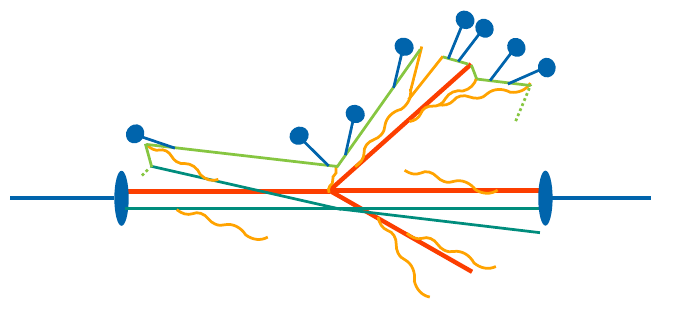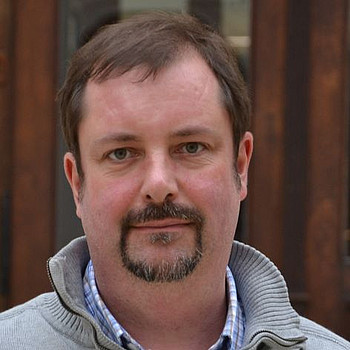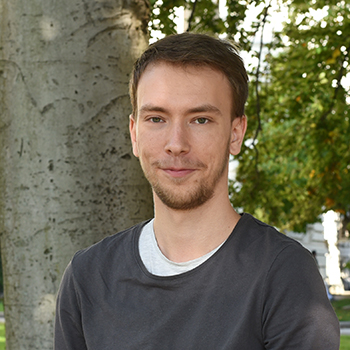Event generators and resummation
Simon Plätzer
Understanding and simulating complexity
We work on the phenomenology of elementary particle reactions, centred at the interface between theory and experiment. What we want to know is how the data acquired at particle collider experiments are telling us about the fundamental constituents and forces of nature, and how the complexity observed in high energy reactions emerges from simple building blocks. This is only possible by combining a large range of methods from analytic calculations to fully detailled Monte Carlo simulations. We apply these methods to the strong interaction, to electroweak interactions, as well as to hypothetic dark matter particles.
We are involved in several international networks like MCnet and COMETA, and have ongoing collaborations with researchers at Karlsruhe, Lund, Manchester and Vienna. You can also find information at the University of Vienna and my personal webspace.
If you are interested in a thesis project please contact me in the office or by email.

Event generators, parton showers and hadronization models: We design and analyze parton shower algorithms and hadronization models which describe how jets, collimated bundles of hadrons, emerge from a a hard scattering, and we want to understand how these simulations need to be adapted for complex heavy ion collissions. We are experts on including precision calculations in event generators, and all of these activities provide major contributions to Herwig 7, one of only three versatile packages used at collider experiments.
Analytic resummation and amplitude evolution: We are world-leading in building a new approach of parton evolution at the amplitude level which is including quantum mechanical interference from the beginning. The method is suited to be used as a tool for analytic resummation, as well as the basis of a next generation of event generators. It also teaches us how we can simulate the infrared structure of scattering amplitudes beyond common apprpximations. This activity is driving the development of the CVolver library.
Conceptual aspects of quantum field theory and its simulation: If we want to predict and simulate detailed final states, then the knowledge of the dynamics of observed bound states and thus non-perturbative quantum field theory is inevitable. One of our most recent activities focuses on some of these field-theoretic questions, as well as on formulating and simulating quantum field theories on a lattice.
Monte Carlo methods: Simulation is our central tool, and so are Monte Carlo algorithms. We in particular work on Markov chains in presence of negative transition rates, adaptive integrators and samplers, resampling algorithms, and algorithms for the evolution of density operators.
Algebraic tools, loop calculations and group theory: The building blocks of our simulations require dedicated perturbative calculations, for which we develop algebraic tools for (one-)loop integrals, spinor helicity, chirality flow, and for cuts and loop integrands. Gauge theories require us to use modern group-theoretic approaches such as birdtracks, for which we develop efficient calculational algorithms.
Phenomenology: The link to experiments is the backbone and application of our research. We study new observables and determine how precise our simulations are. This involves statistical knowledge as well as high-dimensional parameter fits and is done in close interaction with experimental colleagues.
Lectures
My recent lectures at the KFU include Lattice Field Theory (summer term 2022 and summer term 2024), Mathematical Methods for Teachers (winter term 2022/2023), Collider Phenomenology (winter term 2023/2024), and Special Topics in Particle Physics (S-Matrix theory and Amplitudes, summer term 2024). Before this, among others, I was giving lectures on Advanced Quantum Field Theory (Path integrals, non-abelian gauge theories, summer term 2021), Standard Model Phenomenology (summer term 2020) and QCD and Collider Physics (summer term 2017) at the University of Vienna.
Summer Schools
I also regularly lecture at summer schools, in particular the MCnet schools, see the one in Zakopane for example.
My research has always involved a number of students at Graz, Vienna and abroad. Projects are available ranging from Bachelor to Master and PhD theses (subject to funding), and a variety of analytical and numerical/simulational aspects can be worked on. If you are interested please contact me by email.
Examples of recently completed theses are:
- Ines Ruffa: "Colour flow evolution at next-to-leading order", M.Sc. thesis Vienna 2020 (Fred Wehrl prize for outstanding theses). Ines is now a Ph.D. student at Vienna.
- Peter Majcen: "Simulating double soft gluon emission", M.Sc. thesis Vienna 2022. Peter is now a Ph.D. student at Padova.
- Jan Priedigkeit: "Phase space effects in the cluster hadornization model", B.Sc. thesis Graz 2023.
- Matthew De Angelis (co-supervised with Jeff Forshaw): "QCD evolution at amplitude level", Ph.D. thesis Manchester 2021
Networks
We are active in developing, shaping, and participating in networks. Our recent activities include being main proposer of the COST action COMETA, proposing a MIAPbP program on "Event generators beyond colliders", an MITPW Workshop on "Factorization and Evolution in Full Colour" and setting up a bid for a MSCA Doctoral Network.
Workshops
As a central part of scientific exchange we also (co-)organize workshops and conferences.
2025
- Event Generators at Colliders and Beyond Colliders
- Factorization and Evolution in Full Colour
- Birdtracks
2024
2023
Team

Dr. Simon Plätzer

B.Sc. Simon Dampfhofer
